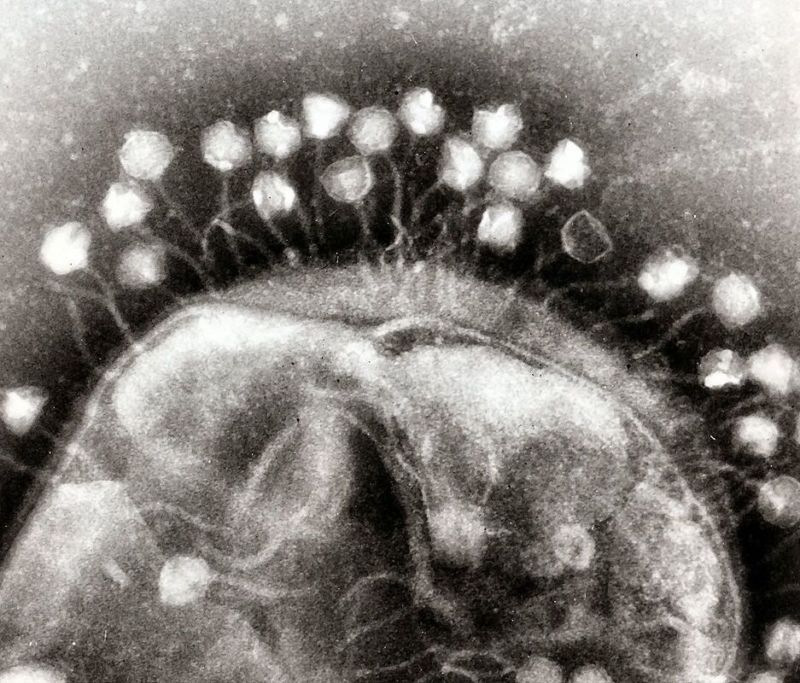Giant viruses may be attacking the microbes in our guts

Enlarge / Phages on the surface of a bacterial cell. (credit: Dr. Graham Beards )
In many cases, viruses manage to spread so readily because they're so compact, allowing hundreds of thousands of viral particles to explode from a single sneeze. That compact size comes in part from their limited needs. Since viruses use parts of their host cells for much of what they need to do, even the more complicated viruses tend to only need a few dozen specialized genes to do things like evade the immune system or remain dormant in cells. In fact, complexity would seem to go against one of virus' evolutionary advantages: the ability to make lots of copies of itself very quickly.
So it was a bit of a surprise to find that there are giant viruses that carry far more genetic material than they seemingly need. All cells carry the machinery needed to make proteins so, at most, viruses typically carry just a few genes that direct the machinery to focus on the virus' needs. But the giant viruses seemed to carry replacements for much of the basic machinery itself. Those viruses were attacking complicated cells, with a lot of internal structures and many complex biological processes going on in different locations. Maybe carrying all those seemingly superfluous parts was advantageous in that context.
Or possibly not. In a study released today, researchers describe a large collection of giant viruses that target bacteria. While smaller than some of the largest eukaryotic viruses, they're not that much smaller. And given that they infect bacteria, the genomes of the newly described viruses may be a substantial fraction of the size of their host's genome.
Read 13 remaining paragraphs | Comments